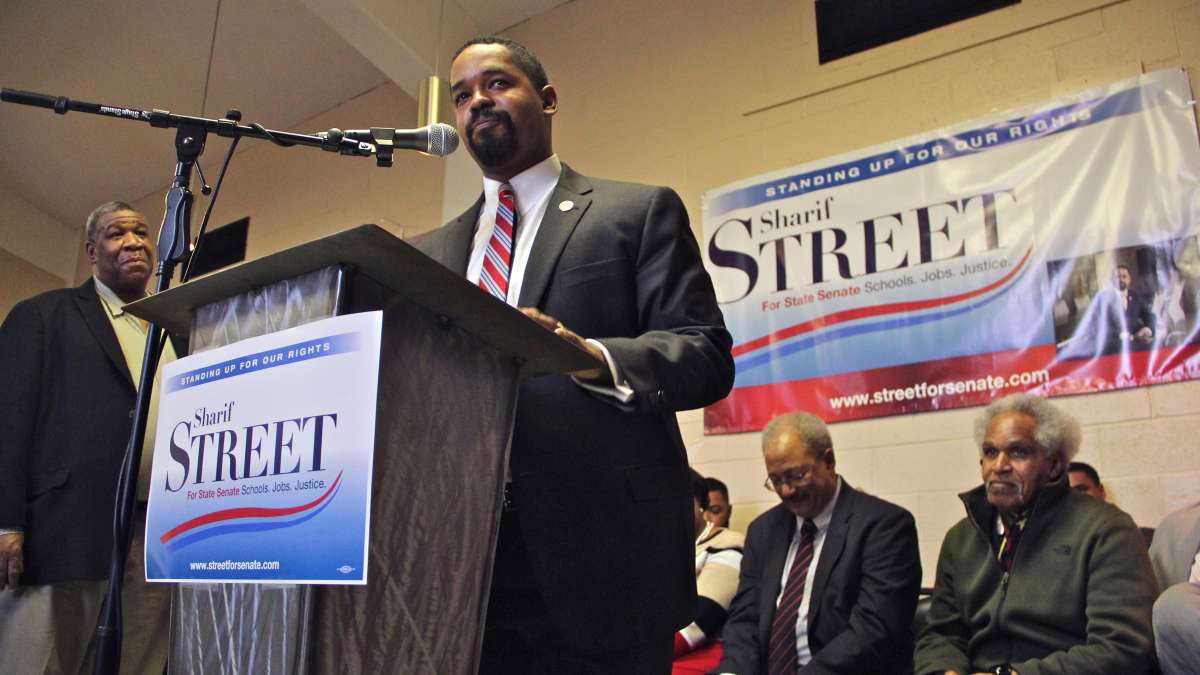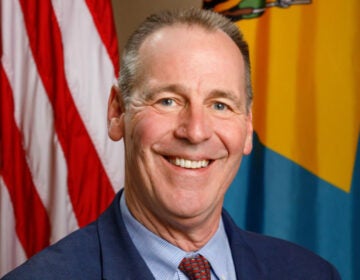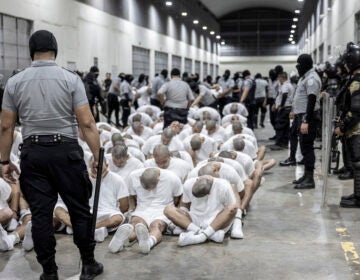Pa. lawmaker continues push to give certain ‘lifers’ second chance
State Sen. Sharif Street is again trying to give the state parole board the option of releasing hundreds of inmates serving life without parole.
Listen 1:55
Sharif Street launches his campaign for state Senate in 2017. Behind him are (from right) his father, former Philadelphia Mayor John Street and former U.S. Rep. Chaka Fattah. (Emma Lee/WHYY)
State Sen. Sharif Street, D-Phila., hasn’t given up on trying to give Pennsylvania officials the power to release some inmates serving life without parole.
Later this month, Street will effectively reintroduce a bill that would make early release possible for three major categories of state inmates, among others.
The list includes inmates who were convicted of murder, but never physically killed anyone; geriatric lifers no longer considered dangerous because of their age and health; and wives who murdered their abusive husbands before the 1990s, when the courts began recognizing “intimate partner violence” as a defense.
“These women were prosecuted for [first-degree murder] and in many cases the prior abuse was ruled inadmissible until sentencing. And so, what Pennsylvania at that time considered a leniency for these women striking back and standing up for themselves against their abusers was only sending them to life in jail and not giving them the death penalty,” said Street, a former lawyer.
The bill will be similar to the one Street tried to pass in the last legislative session.
While the final details are still being hashed out, the latest version of the measure will likely require more time to pass before the state parole board can consider these inmates for release.
A co-sponsorship memorandum for the bill suggests that anyone convicted for second-degree murder must serve a minimum of 20 years before being eligible for parole and 30 years for people convicted of first-degree murder.
It’s unclear which inmates serving life sentences would be considered geriatric.
Either way, Street said, his bill will save Pennsylvania millions.
“We’ve proposed plowing it into victim services, community corrections, crime prevention programs, law enforcement. I’d rather pay for a police officer on the outside to prevent crime than a correctional officer on the inside to watch people who have committed crimes,” he said.
The move to overhaul Pennsylvania’s criminal justice system is largely bipartisan. Street’s bill could still be a challenge to pass this time around, in part because he may have to contend with opposition from Jennifer Storm, who leads the Pennsylvania Office of Victim Advocate.
Storm doesn’t flatly reject the bill’s intent, but she has mixed feelings about the groups of lifers Street wants to be eligible for parole. Storm can’t get behind paroling the majority of inmates convicted of first-degree murder, but she is open to possibly releasing some people convicted of second-degree murder, including certain getaway drivers.
“We don’t know enough yet. We’ve always been ‘a life is life’ state in Pennsylvania. So, we don’t know what it’s like to release a lot of lifers out into the community,” said Storm.
Street said 635 inmates convicted of second-degree murder would be eligible for parole if his bill became law.
Fewer than 200 juveniles serving life sentences in Pennsylvania have been released since the U.S. Supreme Court ruled the practice to be unconstitutional in 2016.
WHYY is your source for fact-based, in-depth journalism and information. As a nonprofit organization, we rely on financial support from readers like you. Please give today.





